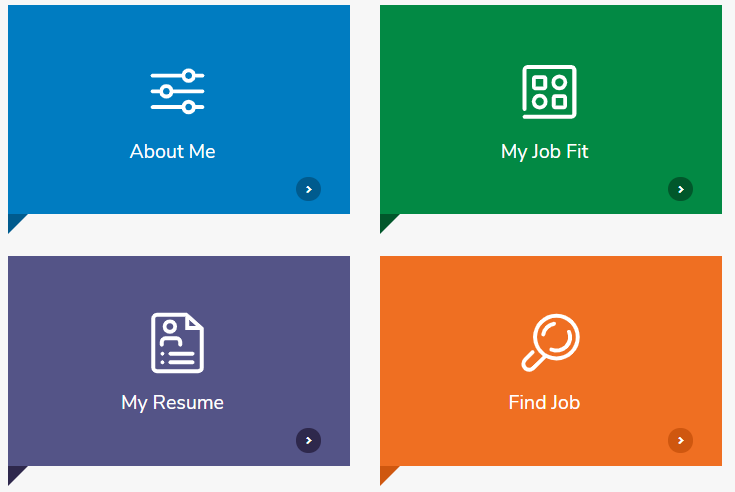What are the 8 different types of employment?
Published by MAXSolutions on July 25, 2022

There are different types of employment for different industries roles and levels of experience or responsibility.
When you are searching for a job it is important to understand the differences and how they apply to your unique situation.
If you manage to secure a role, it is also crucial that you understand your entitlements and legal rights within your employment contract.
Different types of employment:
- Fulltime
- Part-Time
- Casual
- Fixed-term contract
- Apprenticeship
- Traineeship
- Internship
Full-time employment
Full-time employee contracts are the most commonly advertised roles. These roles will have consistent hours generally between 38-40 hours per week. What is considered will depend on the industry and the role.
You may be working 9 to 5 Monday to Friday, or you may keep more varied hours that might include nights and weekends or rotating rosters.
Full-time employees will be entitled to sick leave, holiday leave and other forms of leave that are required by your roles award or outlined within your contract.
For specific information about your award, you can find more information at the Australian government’s fair work website which will detail all the conditions of different industries and types of employment.
Full-time employees may also receive a range of company-specific perks such as discounted products, paid training or reward programs.
Part-Time employment
Part-time employment is essentially the same as full time except you work fewer hours. Generally, less than 35.
There may be some other differences in some of the benefits part-time employees receive such as paid training, bonuses or the ability to work overtime.
The benefit of a part–time schedule is greater flexibility to fit work in with your personal situation while maintaining many of the same benefits and protections that full-time employment offers.
Casual employment
Casual employment can have lots of flexibility and may suit those that have lots of other commitments in their life whether it be study or family or health reasons.
There are no requirements to accept shifts provided if they don’t fit in with your schedule. However, the employer has no requirement to provide shifts either.
This kind of employment does not provide any paid leave entitlements and there is also no requirement for either the employer or employee to provide notice to end employment.
Causal employees also receive a higher pay rate or ‘casual loading’ to offset the lack of other paid entitlements. The amount you receive will depend on your role. You can easily find your award here: Find Your Award
These types of employment conditions are common in retail around Christmas or the agricultural industry around harvest time.
Fixed-Term Contract
Fixed-term contracts can be found across many industries however, you may see them more often in professional or government settings.
They are commonly used to replace staff that have left on paternity, long service, sabbatical or extended medical leave.
As the position is only temporary, there is no expectation of ongoing employment past the contract end date, however, fixed-term contracts can be useful in proving yourself to an employer and leading to further opportunities.
These contracts are either full or part-time and usually offer the same benefits and protections during the length of the contract.
Apprenticeship
An apprenticeship is where you study for 3 – 4 years to attain a trade qualification such as an electrician, hairdresser or mechanic.
These contracts allow for you to work in your chosen field and as well as regular paid days off the tools to go to class and undertake theoretical study towards Your qualifications.
You could be employed full or part-time as an apprentice and receive the same leave entitlements and allowances as others in your industry.
You can also undertake a school-based apprenticeship where you begin training and working towards your qualification while finishing high school.
As an apprentice, you will be paid at a lower rate than a fully qualified tradesperson and will depend on a variety of factors such as:
Your age
The type of apprenticeship
How many years you have been in the apprenticeship
Industry or job
Traineeship
Traineeships are very similar to apprenticeships with the main difference being the length of the agreement and the types of industries they cover.
Traineeships are more likely to last between 1 to 2 years, depending on the industry and role, and are focused on vocational roles within industries such as business, IT, retail, community health, childcare and many others.
Traineeships are also far more likely to be available for students to undertake school-based traineeships while finishing off their high school education.
For both Traineeships and Apprenticeships, you are considered mature age if you are over the age of 21 and will receive better pay rates. So, these are not just employment options for new high school graduates.
Internship
An internship is a specific kind of employment contract that is more common in a professional setting.
Large companies and government agencies are likely to have internships that last anywhere from a matter of weeks to a year which are mostly targeted at new university graduates.
These types of employment relationships may have lower levels of salary as a trade-off for the experience and training workers will receive throughout the internship.
They also serve as a great stepping stone to full-time employment in the industry.
It is, however, important to be clear about an internship when it comes to pay.
Unpaid internships do exist, but these must be for the purpose of learning and skill development for the intern.
If you are engaged long-term and are carrying out work for the business that a paid employee would normally do, you should be getting paid.
Share
Tags
Found this useful?
Help and advice
Our blogs are about helping people seek the information that they need for their steps in the workforce.














_1.jpg)





























.jpeg)




















